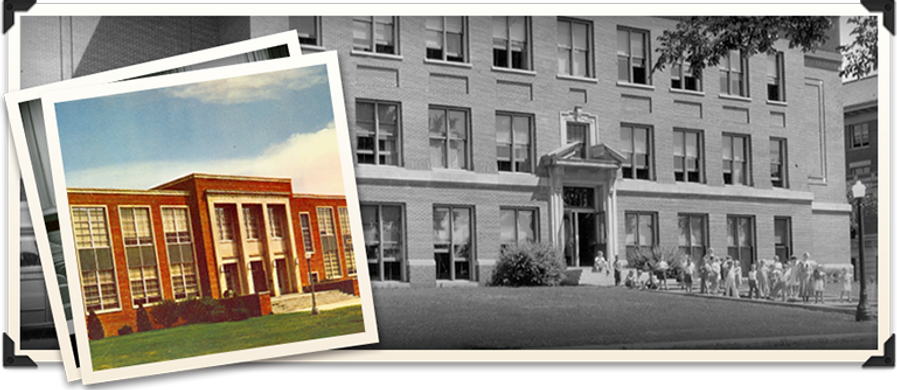

LYN COUNTRYMAN

LYN COUNTRYMAN
Awards have showered on Lyn Countryman, who joined the Lab School science faculty in 1990. With Stone, she published and presented on “Problem-Based Learning in Science Teaching.” With Cooney and Unruh, she co-authored “The PRISMS Approach: A Spectrum of Enlightening Physics Activities” in the 1992 Science Teacher. “You were looking at what kids understood,” Countryman explains, “so you were looking to see what tripped them up.” In 1994, she followed this in Science Scope with the imperative “Make Science Recent, Relevant, and Responsive.” The same year and in 1996, she published articles explaining the benefits “When Students Lead Parent-Teacher Conferences.” In 1993, Countryman was honored for Excellence in Science Teaching at the Middle School Level by the Iowa Academy of Science; in 1994, she was named the Grout Museum Honor Roll Science Teacher of the Year. In 1995, she received the Excellence in Science Teaching Award from a consortium of national companies, including AgrEvo DuPont, DowElanco, and Uniroyal. This was topped in 1999 when she joined David Christensen as the second Lab School teacher to earn the Presidential Award for Excellence in Science and Mathematics Teaching, the nation’s highest honor. The Iowa Academy of Science gave her its Distinguished Service Award in 2002.
In 2007, Countryman co-authored an article titled “Confident Commute: Increasing Safety for Teen Drivers” which offered a unit for high school biology teachers. The teacher begins by asking the students to list the 3 leading causes of death for their age group. After the students compare and discuss their lists, the teacher reveals that “unintentional injury” causes the most deaths, with car accidents the leading cause. This leads to the class studying biological effects and developing a list of safety measures. That year Countryman was selected as a Science Ambassador for the U.S. Centers for Disease Control and Prevention. This experience exposed her to the wide variety of job opportunities in public health. “I think that’s one of the biggest things that we can take back to our classrooms,” Countryman said. “We can teach kids that there are a lot of careers out there in public health that they probably don’t even think about.” Countryman began to revamp her biology curriculum. Instead of teaching a unit on cells, she explained, she would teach a unit on cancer. “And we’d go backwards, first looking at the CDC statistics on cancer and discuss what we need to know to learn what cancer does," Countryman said, “and then we’d learn about the cell, but we’d start with the public health aspect of it.”
Countryman’s work led to leadership roles in science education. From 2007 to 2008 she served as Executive Director of the Iowa Math & Science Coalition. Through a grant from the Iowa Mathematics and Science Education Partnership, which was founded in 2007, Countryman led an Iowa Studies STEM (Science, Technology, Engineering, & Mathematics) Symposium in 2008 that brought students and teachers together to explore ways to increase the number of students taking high school math and sciences courses. “We really want to make students excited about science and math and show them that it is something they can really have fun with,” Countryman said. “We like to hear from the students and see how we can help create a better program in their schools.” In 2010, Countryman served as President of the Iowa Academy of Science, and she became a member of the national Committee on the Study of Teacher Preparation Programs in the United States for the National Research Council. The Committee produced the book Preparing Teachers: Building Evidence for Social Policy. That year PBS, the Public Broadcasting System, named her a Teaching Innovator.
In August 2010, Countryman agreed to bring her leadership skills to the Laboratory School as its Interim Director. In her twenty-two months in that role, before the school was closed, the Laboratory School received the 2010 Whole Child Award from the Association for Supervision and Curriculum Development, the first such award given. This national ward recognizes schools that “move beyond a narrow focus on academic achievement to take action for the whole child, creating learners who are knowledgeable, emotionally and physically healthy, civically active, artistically engaged, prepared for economic self-sufficiency, and ready for the world beyond formal schooling.” The Lab School also worked with the state to create training videos. . The next year, the Lab School received the Alliance for a Healthier Generation Award, national recognition for the school's creation of an environment in which physical activity and healthy eating are encouraged and accessible. Countryman also facilitated a $600,000 private grant to support the school’s Technology One-to-One Initiative and High Tech Classroom program. The grant brought a laptop or an iPad to each high school student and planned to do more. At the state level, the school took first and second places in the IT-Olympics Cyber Defense Competition. At the same time, the school served as the model school for the UNI Jacobsen Center’s Comprehensive Literacy project.
In January 2012, when Iowa Governor Terry Branstad proposed a $25 million state education plan, Countryman said, “If we spend $25 million on education, we’ll get that tenfold back. We’ll have more educated students who will be getting better jobs, who will be paying more tax money. It is a cycle that starts with education. Iowa schools have been good and they continue to be good, but we need to push the envelope.”
Receive the latest news and updates in your inbox

Receive News and Updates
